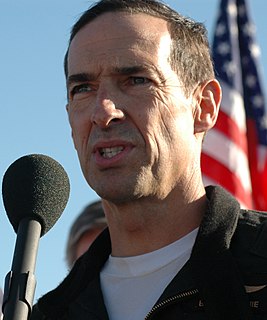A Quote by Helen Sharman
I'm not going into infinity. I'm going into low earth orbit.
Related Quotes
Going into orbit around Earth - where the space station is today, and where the space shuttles and John Glenn and all those folks go-that's three-eighths of an inch above a schoolroom globe, just FYI. That's not very far from Earth. Yes, you are off Earth, but you're not really going anywhere yet. The moon was the only real destination.
To infinity then. (Bubba) What’s that mean? (Nick) It’s something my dad used to say when I was a kid. To infinity, meaning you’d see something through to the end. (Bubba) Infinity is never-ending. (Nick) That’s right, which means you keep going and going no matter what happens or what obstacles you meet. Over, under, around or through. There’s always a way. And if you have to chase something to infinity, strap on your big-boy pants, hiking boots, and go. (Bubba)
Most Jupiter-sized planets orbit the mother star in a highly elliptical orbit. This means they will often cross the orbit of any Earth-like planet and fling it into outer space, making life impossible. But our Jupiter travels in a near-perfect circular orbit, preventing a collision with any Earth-like planet, making life possible.
I'd like to reiterate that the opportunities in space are going to be vastly different than they've been before, so, for young Canadians preparing for their futures, it's important to understand that there are going to be many opportunities to work in either new space industries that are being developed or to actually go to space, to be one of the people to join our team of explorers who are going to leave lower-Earth orbit. That, ultimately, is amazing, the opportunities we'll have.



































